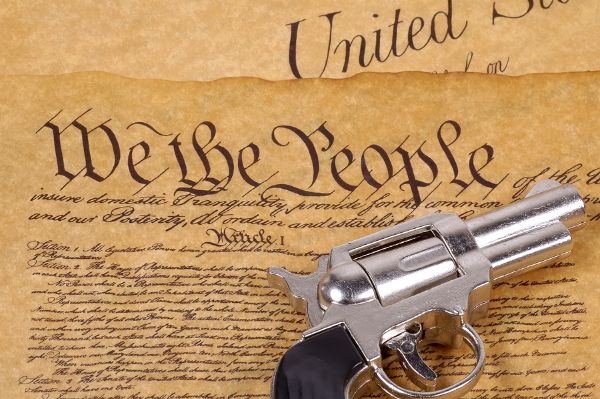Gun Violence in America: Evaluating the Status Quo

This year has been turbulent with gun related homicides; highlighted by the killing sprees in Aurora, Colorado, the Sikh temple in Wisconsin, and now the elementary school shooting in Newtown, Connecticut.
However, arguably more striking is the staggering number of shootings in Chicago this year, which is on course to reach 3,000 before the year’s end. Yet, reforming the nation’s gun policy is considered a taboo topic in Washington, DC.
This was exampled during this year’s second presidential debate, when the presidential candidates lauded for the status quo. Here is what they said after an audience member prompted the topic of US gun policy:
President Obama: “So my belief is that we have to enforce the laws we've already got, make sure that we're keeping guns out of the hands of criminals, those who are mentally ill.”
Governor Romney: “Yeah, I'm not in favor of new pieces of legislation on -- on guns and taking guns away or making certain guns illegal.”
The embracement of the status quo, however, is not working. To put this into perspective, consider the number of deaths in war versus the number of gun related homicides in the US.
Since 2001, there have been over 2,000 American troops killed in Afghanistan, but for the past decade the US has averaged 10,000 gun related homicides each year. In Chicago alone, there have been over 5,000 gun related deaths since 2001.
The last time Congress passed any federal legislation on gun policy was during the Clinton Administration. This included the ‘94 Violent Crime Control and Law Enforcement Act which instituted the federal assault weapons ban that expired in 2004, and the ‘93 Brady Handgun Violence Prevention Act which mandated federal background checks for firearm purchases.
According to a recent story in POLITICO, the reason there has not been any firearm legislation is because “over the past two decades, the type of Democrats who might have rushed to embrace new restrictions have been beaten in elections, worn down by the National Rifle Association and now stampede in the opposite direction.”
There is no doubt that lucrative lobbying efforts and partisan politics have hindered a comprehensive strategy for the gun violence problem in the US.
However, this lack of strategy has corresponded with the ongoing epidemic of gun related homicides that are crippling metropolises across the nation.
The US ranks 8th in the world for the number of homicides by firearm, averaging 3.6 homicides for every 100,000 people. That’s twenty times the amount of Japan, Australia, and the United Kingdom.
According to an ABC news report in July, “among the world’s 23 wealthiest countries, 80 percent of all gun deaths are American deaths and 87 percent of all kids killed by guns are American kids.”
Over the past decade, serious gun injuries in the US have increased by twenty percent, and the gun homicide rate has remained the same. These results suggest that the current laws and enforcement are failing.
There are reasonable reforms that Capitol Hill could employ tomorrow, such as:
- Requiring doctors and law enforcement to work together in order to keep mentally unstable individuals from purchasing firearms legally.
- Developing a special committee that researches other nations’ gun policies in order to discover why their firearm homicide rate is lower than ours.
- Instituting more interventionist programs, such as Chicago’s Ceasefire and Baltimore’s Safe Streets, because they have had empirical success reducing gun violence. Ceasefire was shown in a 2009 Northwestern University study that the program reduced shootings and eliminated retaliatory murders. In the case of the Baltimore program, a study published at Johns Hopkins Bloomberg School of Public Health this year revealed that Safe Streets reduced the homicide rate and limited the number of nonfatal shootings.
Of course, developing a comprehensive policy is complicated. The Second Amendment is a revered part of US history with traditions that span generations for families that enjoy hunting and shooting.
The right to bear arms has become a unique freedom in America, interpreted differently by each and every citizen. Any perceived infringement on this liberty often draws controversy; thus ending healthy debate on sensible reforms.
Yet, common sense reforms on American gun laws do not contradict Second Amendment rights. Rather, the only cost in this debate is the continuation of inaction.





